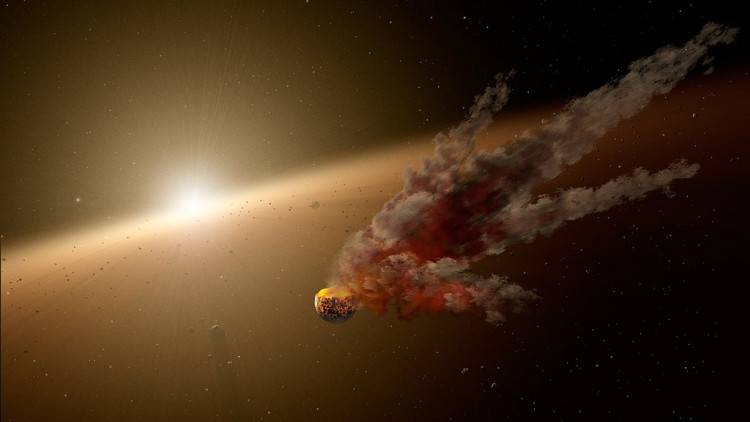Only a handful of objects are believed to pose a significant threat to Earth, and the giant Apophis asteroid is one of them. Scientists are already re-evaluating its potential to strike Earth in 48 years based on new data of the destructive asteroid.
Observations made earlier this year by the Subaru Telescope in Hawai'i provided astronomers with a greater understanding of how the Yarkovsky effect impacts the orbital course of asteroid 99942 Apophis. This effect is like an engineered asteroid propulsion system, in which trace quantities of radiation leakage can change the momentum of the object in space, allowing it to drift away from the direction otherwise selected by gravity.
"Without taking Yarkovsky drift into account, Apophis is still a threatening object, just not in 2068," Dave Tholen, a researcher from the Institute for Astronomy at the University of Hawaii and a co-author of the pending study, told Gizmodo. "With Yarkovsky taken into account, the 2068 impact scenario is still in play. Small, but non-zero."
Tholen, together with Davide Farnocchia from NASA's Jet Propulsion Laboratory, came up with new figures, discovering that Yarkovsky's acceleration is bringing the Apophis danger within the 2068 window. Their observations are described in new research discussed at the 2020 virtual meeting of the Division for Planetary Sciences of the American Astronomical Society.
Apophis currently holds the third-highest hazard title on NASA's Sentry Risk Table. The Palermo Scientific Risk Threat Scale estimate predicts that there is a 1 in 150,000 chance that Apophis will strike Earth on April 12, 2068.
A collision with Earth would be disastrous. Apophis, lined with nickel and iron, is more than 1,000 feet wide or more than three soccer fields if that's how you want to imagine it. The surface impact will unleash an equivalent of 1,151 megatons of TNT. Such a calamitous occurrence occurs on Earth every 80,000 years.
Therefore, it is only understandable that scientists are keeping a close eye on Apophis to improve their predictions. When the asteroid was detected in 2004, for example, astronomers originally gave a terrible 2.7% probability of making an impact on Earth in 2029. Astronomers have since ruled out this as an option, along with a possible impact in 2036. As for the 2068 event, this can not be ruled out, at least not yet, due to the Yarkovsky effect influencing Apophis.
More observations should boost measurements, including a clearer characterization of how the Yarkovsky effect affects Apophis' drift rate. It's pretty fair to assume that astronomers will know if the effect is imminent before 2068






